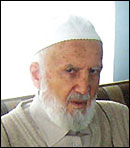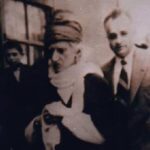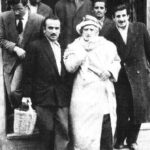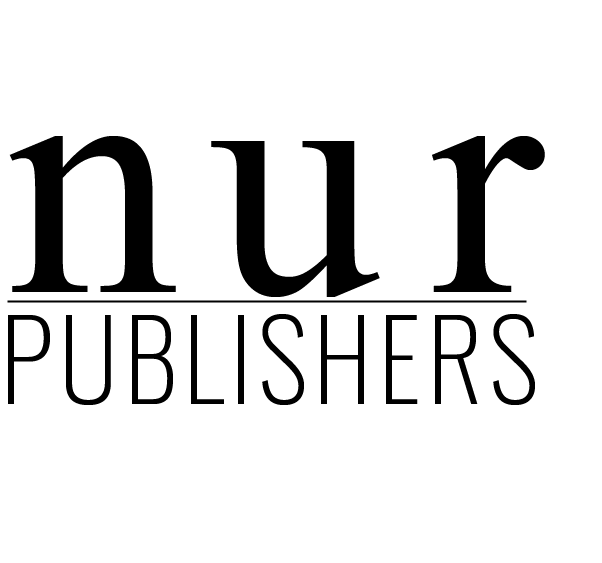Why the Risale-i Nur?
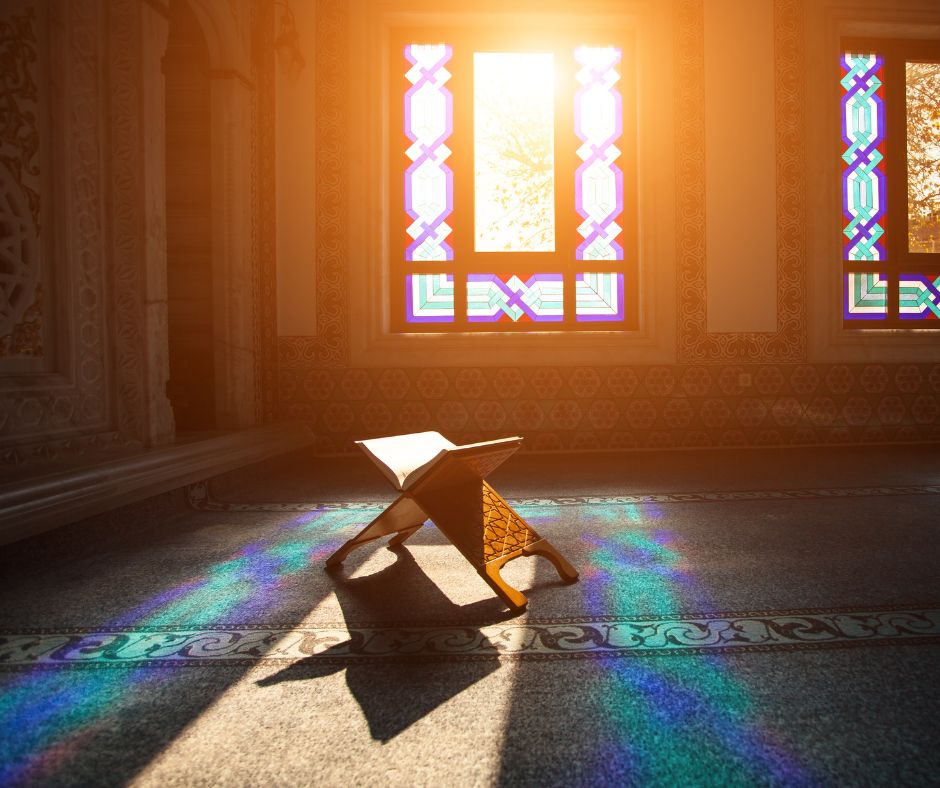
Truthful
The truths of religion are easily understandable

Inclusive
Opens up the search for God to everyone

Time Tested
Published in over fifty languages for fifty years

Uplifting
Those who discover it have a natural desire to share it with others
Our Story
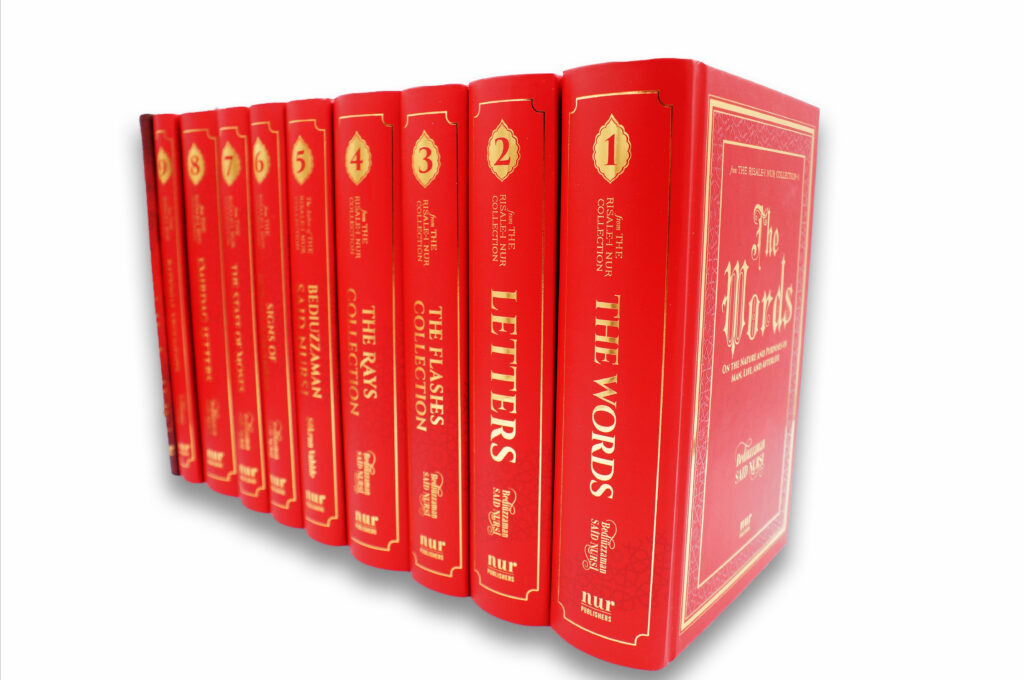
From our founder, Dr. Osman Birgeoglu: It all started in the summer of 1970. I felt there was a big need to translate Risale-i Nur into English in order to reach people outside of Turkey. At that time, I was part of the team of proofreaders of Risale-i Nur books. Zubeyir Gunduzalp was leading this team of proofreaders. Due to poor health, he was unable to participate in the general meetings that were going on simultaneously, but instead he concentrated his energy on the proofreading task of the books which he felt was most important. Thus, I met with Zubeyir Gunduzalp very frequently. Important to note is that only very rarely were people other than government officials able to leave Turkey. The general public simply could not purchase foreign currency to travel during the 60’s and 70’s. God answered my prayer by sending a fellow Risale-i Nur follower, Hussein Demirkan, who asked me to seek Zubeyir Gunduzalp’s blessings for him to attend a master’s program in the United States. This was also my perfect opportunity to personally discuss with Zubeyir Gunduzalp my burning desire to take Risale-I Nur to America.” —Dr. Birgeoglu
After long deliberations:
Zubeyir Gunduzalp said, “OK, let’s do it!”. This paved the way for Osman Birgeoglu to bring Risale-i Nur service to America and establish Bediuzzaman Said Nursi’s wondrous works. It may be worth mentioning here that in the summer of 1972, at Tahiri Mutlu’s place in Kocamustafapasa in Istanbul, Dr. Birgeoglu’s enthusiasm, eagerness and talent in working with the group of proofreaders/editors in bringing the most correct work of Bediuzzaman’s works as it was intended by the author was recognized by three important figures of the Risale-i Nur service: Mustafa Sungur, Bayram Yuksel, and Abdullah Yegin. Huseyin Demirkan went to the University of Iowa at Ames in 1971. Osman Birgeoglu followed him in the summer of 1973 as a visiting scholar at the same university. He took courses at the university as well as met potential people who could help him facilitate the translations of Bediuzzaman’s works into English. He met Suleyman Kurter at a convention while in Iowa and asked his help with translations. They immediately started translating the biography of Bediuzzaman Said Nursi. Ali Ucar, another well known student of Risale-i Nur, came all the way from Germany to help with typing. A short version of the biography was published in March of 1974. Ali Ucar went back to Germany and Hasan Kondu from Turkey came to take his place to help.
From Nur the Light to Nur Publishers:
Although the English translations started in 1970, the first fruit materialized in the fall of 1973 when the translation was completed for the Biography of Bediuzzaman Said Nursi, and then later was printed as a book in March of 1974. Due to the lengthy process of book printing, it was decided that Risale-i Nur could be delivered to readers faster in the form of a magazine. Four months later, the first issue of “Nur the Light” magazine was printed in July of 1974. Copies were sent to 70 different countries, clearly indicating the immediate and powerful influence and popularity of Risale-i Nur with people seeking deeper meaning and secrets of God’s revelations. Suleyman Kurter’s earnest help continued until March 1975 when he, Osman Birgeoglu, and Hasan Kondu already published the second important book of the Risale-I Nur: “Nationalism in the view of Islam.” Then, there was a need at this point for Dr. Birgeoglu and Hasan Kondu to move to California to be closer to Dr. Hamid Algar, who had promised Mehmet Firinci earlier to do some translations for Risale-i Nur. In March of 1975 the two man team moved to El Cerrito, California and continued publishing the bi-monthly Nur-the Light magazine. After the biography and a small booklet, “Nationalism in the view of Islam,” the third book, “Fruits from the tree of Light”, was published at the end of 1975. Huseyin Demirkan, Mehmet Firinci, Mehmet Buker, and Umit Simsek had come to help with printing and manual binding of the books at the end of 1975 for a brief time. However, Huseyin Demirkan stayed and helped until the summer of 1977 when he too returned to Turkey.
The Risale-i Nur Institute of America:
1975, most importantly, was the year Dr. Birgeoglu founded and established the Risale-i Nur Institute of America. The printing branch, Nur Publishers, was later added to the Institute. Dr. Birgeoglu then opened the Nursi School of Theology in January, 2011. Registration with the state of Arizona was made in March, 2011. This permanent platform fulfills his life long dream of sharing the treasures and truths of God through the works of the Risale-i Nur. This monumental birth became the foundation for contributing to Bediuzzaman’s three grand goals:
- Printing and dissemination of the Risale-i Nur collection
- Continuation of Risale-i Nur reading groups
- Publishing the miraculous Quran, a previously unnoticed aspect of Its miraculous nature discovered by Bediuzzaman
Dr. Hamid Algar continued translating Risale-i Nur until 1985 when Sukran Vahide took over the translations. In that year, she moved to Istanbul, Turkey to work more closely with students of Risale-i Nur. She has been the sole English translator of the books since. Her continued help in the Risale-i Nur service for exactly a quarter of a century is tremendously appreciated, needed and irreplaceable. Readers from all over the world are asking especially for her translations when ordering books.
Bediuzzaman Said Nursi
Born in Turkey, he received the name Nursi. He received his basic education from the best-known scholars of the district. The extraordinary intelligence and capability of learning that he showed at a very early age made him popular with his teachers, colleagues and the people. When he was fifteen years old, in 1888, he silenced the distinguished scholars who had invited him to a debate (debate was a popular practice among scholars at the time) with his genius skills and knowledge. This later recurred several more times with various groups of scholars, and he thereby began to be called Bediuzzaman (Wonder of the Age). The time Bediuzzaman Said Nursi spent in education paved the way in his mind for the thought that at a time when the world was entering a new and different age, where science and logic would prevail, the classical educational system of theology would not be sufficient to remove doubts concerning faith. He concluded that religious sciences should be taught at modern schools on the one hand, and modern sciences on the other. “This way,” he said, “the people of the school will be protected from unbelief, and those of the religious institutions from fanaticism.” Bediuzzaman Said Nursi deemed the most severe disease afflicting man in the present age in his search for true happiness to be weakness in belief in God, and diagnosed the source of this disease as being the tendency to regard the modern sciences and religious science as separate and irreconcilable entities. Since man is, in reality, a being composed of both matter and spirit, to consider existence from the viewpoint of only one of this pair can yield no result other than an intensification of the crisis into which man has fallen. Unfortunately, modern science has remained totally incapable of finding a remedy for the spiritual wounds of mankind, despite all its brilliance. Confronted by this situation, as a man of science appreciating the necessity for a reconciliation between religion and modern science, Bediuzzaman Said Nursi examined the foundations of faith in a fashion suited to the mind of the age and in so doing produced the 6,000+ page work known as the Risale-i Nur. Extraordinary to note is that Bediuzzaman Said Nursi’s life was a constant struggle with the government for his teachings as shown in his own words, when he was interviewed by Esref Edip (a well known journalist, in 1952 in Istanbul: “Do they suppose that I am an egotist struggling to save myself alone? On the contrary, I would scrifice both my life in this world and the Hereafter to save the faith of the nation. I have known no worldly pleasures during my lifetime of eighty years and more. I have lived out my entire life either on the battlefield, in captivity, in dungeons or prisons, or in the courts of my native land. I have encountered all kinds of suffering and pain. I have been treated as a criminal at martial courts and exiled from one province to another like a vagabond. I have not been allowed visits in confinements, and I have been poisoned time and time again [19 times] and insulted in many ways, to the extent that sometimes I have preferred death over life. If our religion had not forbidden us to commit suicide, perhaps Said Nursi today would be buried under the earth. You see, my life has passed through many sufferings, trials, calamities, and disasters. I have devoted myself and my life to the cause of the faith, belief, security and salvation of the nation… I claim nothing and I do not call down curses upon them because in this way the Risale-i Nur has become a means to save the faith of some hundred thousand or a million people. I would save only myself by dying, but by enduring such sufferings and trials I was able to help save the faith of a great many people. All thanks be to God, the Exalted, I would sacrifice my salvation for the safety of the faith of the society. I am neither fond of Heaven nor afraid of Hell. May a thousand Saids be sacrificed for the faith of the nation! Heaven will become a dungeon for me if the Qur’an is without followers on earth. On the contrary, I will be pleased and content to agree to be burnt in the fire of Hell if I know that the faith of the nation is in safety.” -Bediuzzaman Said Nursi
After completing a lifetime of almost a century, with every minute spent in the service of faith, at the advanced age of 87, Bediuzzaman Said Nursi departed from this world on the morning of March 23, 1960 (Ramadan 27, 1379), in Urfa, Turkey, with complete honor, dignity and victory. Bediuzzaman Said Nursi left behind the Risale-i Nur Collection that would illuminate this and the forthcoming centuries and a love that would be handed over from generation to generation until eternity.
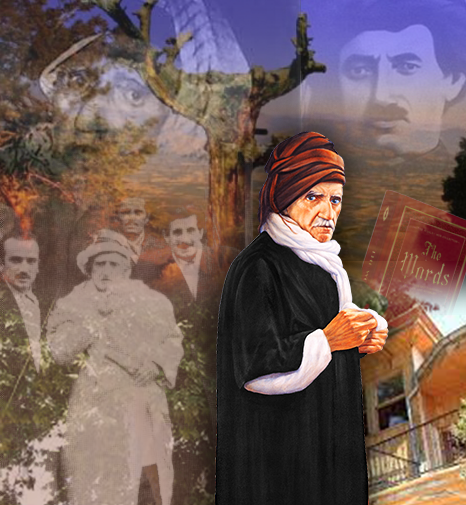
The Risale-i Nur

The Risale-i Nur explains the most profound matters of belief, which formerly only advanced scholars studied in detail, in such a way that everyone, even those to whom the subject is new, may understand and gain something without it causing any difficulties or harm. A further reason is that in explaining the true nature and purposes of man and the universe, the Risale-i Nur shows that true happiness is only to be found in belief and knowledge of God, both in this world and the hereafter. The Risale-i Nur also explains the grievous pain and unhappiness that unbelief causes man’s spirit and conscience, which generally the misguided attempt to block out through heedlessness and escapism, so that anyone with any sense may take refuge in solidified belief. The works of Bediuzzaman Said Nursi have become and continue to be a worldwide phenomenon, growing daily as more and more people discover his books. The Risale-i Nur books have been translated in 50 different languages with readers in all corners of the world, from Philippines to Tunisia, from Russia to Australia, not to mention the United States, France and other European countries. Bediuzzaman Said Nursi’s miraculous works have been time-tested by expert scholars in all disciplines including science, philosophy and religion from its first publication. The worldwide movement of the Risale-i Nur is an unprecedented phenomenon, indeed! Benefits of reading the Risale-i Nur are manifold and unparalleled:
- Strengthening the belief of people of all walks of life
- Providing decisive proofs of difficult matters. Said Nursi, for example, proved the existence of the hereafter with the same finality that two plus two equals four
- Showing people how to read the great Book of the Universe so they may understand the meaning of beings and eventually know their Maker
- Solving the talisman of creation and the meaning of life
- Answering the three most difficult questions, “Where do I come from?”, “What am I?”, “Where am I going?”
- Presenting mankind with a 6,000+ page spiritual guide (consisting of 130 books) richly packed with knowledge and gnosis
- Bringing man closer to God; no one answered this fundamental need of man –the need to know his Maker- better than Bediuzzaman Said Nursi. His millions of readers and his 130 book collection testify to this fact.
- Said Nursi discovered the shortcut to Truth, Purpose and Reality of Existence, essentially making available to all mankind a more realistic, but genuine and authentic path to enlightenment
- People who taste the Risale-i Nur feel a natural desire to share it with other people. Sharing, kindness and connecting with others…“it is the hallmark of the Risale-i Nur!” says one of our readers.
Bediuzzaman Said Nursi gave great importance to making the matters discussed in the Risale-i Nur comprehensible to every class of people, and hence employed the simplest examples when clarifying even the subtle and profound questions of faith. Risale-i Nur transforms faith garnered through imitation into genuine faith of realization. Bediuzzman Said Nursi explains the true nature of the universe as signs of its Creator and demonstrates through clear arguments that when it is read as such, all the fundamentals of belief may be proven rationally. When this method is followed, a person attains a true belief that will be sound and firm enough to withstand any doubts that may arise in the face of the subtle attacks of materialism, naturalism, and atheism, or the materialist approach to scientific advances. For all scientific and technological advances are merely the uncovering of the workings of the cosmos. When the cosmos is seen to be a vast and infinitely complex and meaningful unified book describing its Single Author, rather than causing doubt and bewilderment, all these discoveries and advances reinforce belief, they deepen and expand it.
About Dr. Osman Birgeoglu
Dr. Osman Birgeoglu, founder of the Risale-i Nur Institute of America and its printing branch Nur Publishers, was born in Balikesir, Turkey. He left home at age 12 to attend boarding school. He then continued his education at the University in Istanbul completing his PhD in electrical engineering in 1974. During his university years, Dr. Birgeoglu was introduced to Risale-i Nur in 1965 at the age of 17. Five years later, Osman Birgeoglu not only had the privilege to meet, he also began his continued learning of the Risale-i Nur under the esteemed tutelage of several of Bediuzzaman Said Nursi’s top students, including Zubeyir Gunduzalp, Abdullah Yegin, Bayram Yuksel, Tahiri Mutlu, Mustafa Sungur, Mehmet Firinci, and Dr. Sadullah Nutku, all of whom closely served Bediuzzaman Said Nursi during his lifetime. Osman Birgeoglu in 1976 married his wife, Mebruke, niece of Mehmet Firinci and Sukran Vahide. Osman Birgeoglu and his wife continued the Risale-i Nur service in California until they moved to Phoenix Arizona in August, 1993 where they currently reside and operate The Risale-i Nur Institute of America and its printing division, Nur Publishers, and the newest branch, the Nursi School of Theology. Nur Publishers prints and distributes the English translation of the Risale-i Nur books, not only for the United States, but also for other countries such as Canada, England and Australia, and various European countries. Dr. Birgeoglu, his wife, and the Risale-i Nur Institute of America staff continue to address the ongoing worldwide inquiries for the English versions of the Risale-i Nur works.























